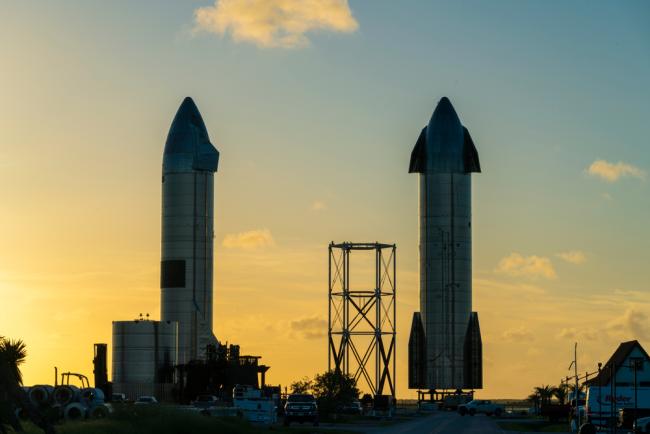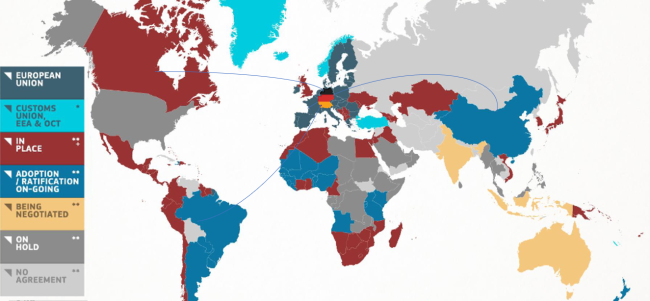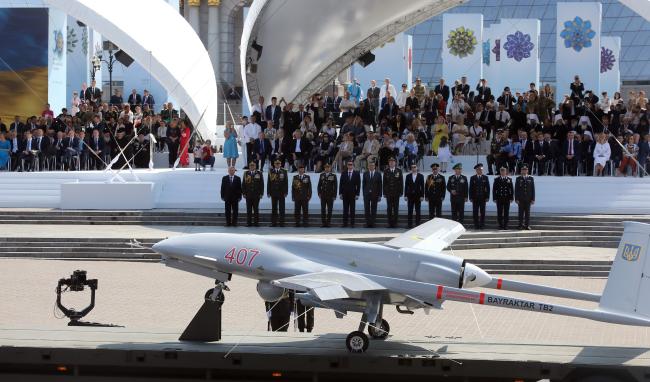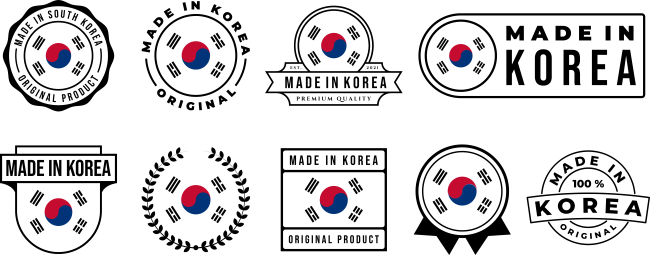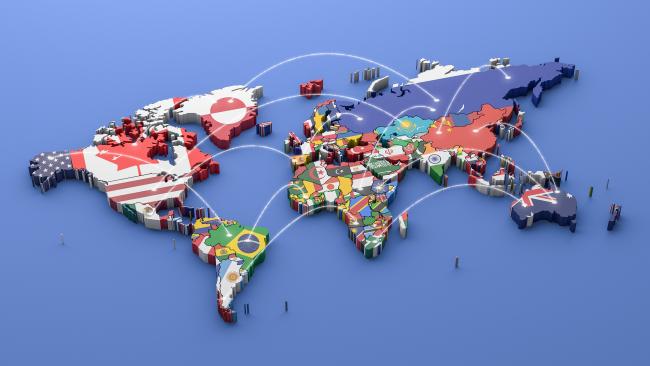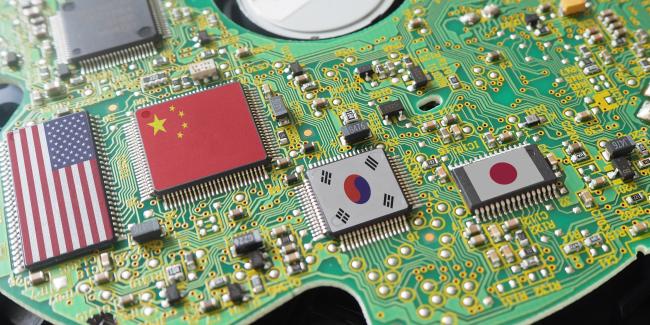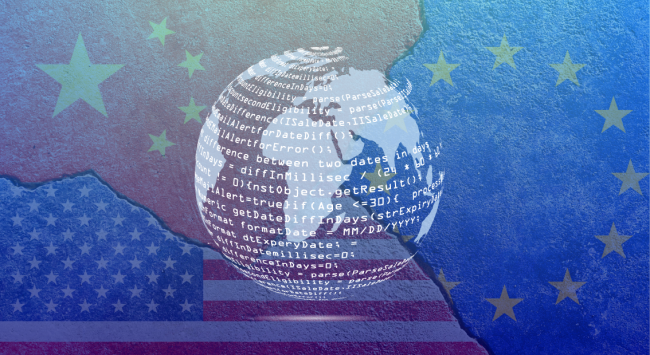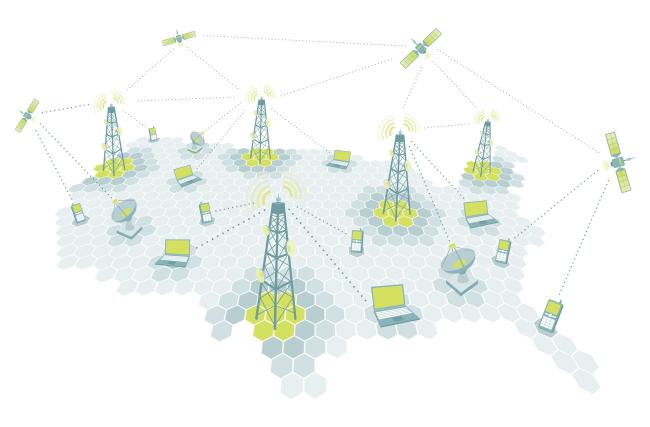Technological innovation
Technological ecosystems are being restructured in the wake of innovations such as artificial intelligence and quantum technology, prompting investment policies and efforts at governance and regulation.
Related Subjects
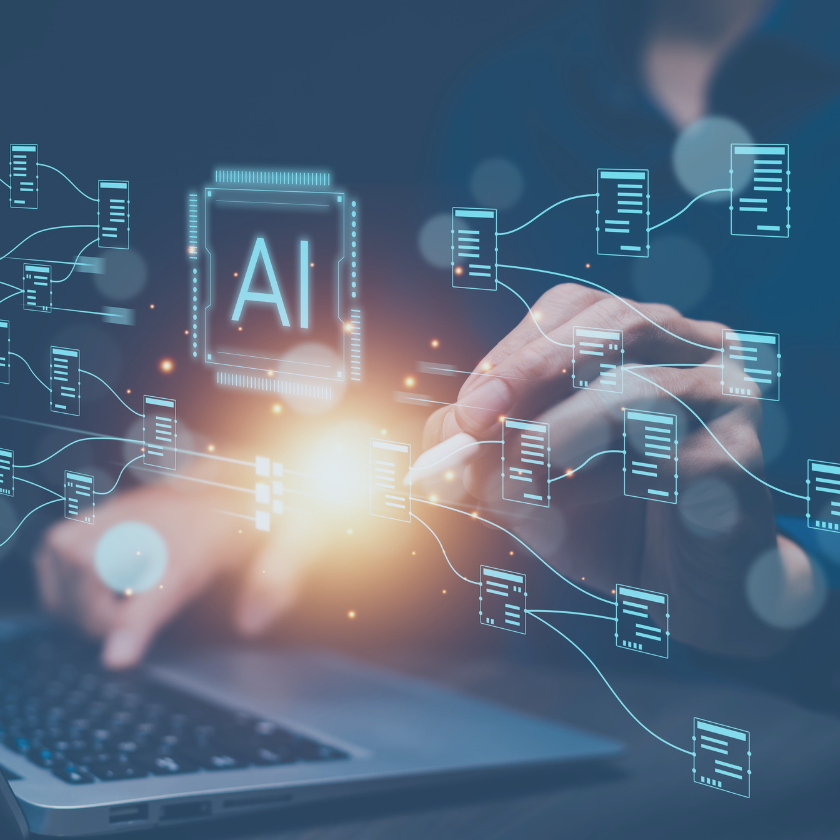
2024: A Pivotal Year for the Space Sector?
2024 could be a pivotal year for space exploration. New launchers are set to make their first flight, satellite constellations and other trends promise to redefine the way space is explored and exploited.
Towards a New European Trade Strategy in Times of Geopolitical Upheaval: The German Perspective
As one of the most successful trading blocs, the EU sees itself confronted with the erosion of the global rules-based trading system and trade becoming increasingly weaponized.
How to Curb Investments in Chinese Technology: Initiatives and Debates in the United States
In a continuation of U.S. efforts to slow China's development and acquisition of strategic technologies, Washington has imposed new restrictions on American investment in Chinese technology sectors such as artificial intelligence (AI), quantum, and semiconductors.
TB2 Bayraktar: Big Strategy for a Little Drone
Since 2016, the tactical drone TB2 Bayraktar—“standard bearer” in Turkish—has received considerable media attention, particularly during the conflict in Nagorno-Karabakh in 2020. Thanks to Azerbaijan’s victory over its neighbor Armenia, the drone, manufactured by Baykar, is now a proven combat system with increasing numbers of export clients.
Reshuffling Value Chains - South Korea as a Case Study
Despite all the talks about the reshuffling of value-chains and the trend to a form of industrial “Desinicization” (or decoupling/disengagement from China), the example of South Korea does not vindicate such assertions.
The Technology Policies of Digital Middle Powers
Digital technology is an element of power in the international system as well as an area for competition among countries. The study provides a qualitative comparison of the technology policies of nine of the digital middle powers: Brazil, India, Israel, Japan, Kenya, Nigeria, Russia, South Korea, and the United Kingdom. It seeks to reflect the diversity of national technology policies, as well as to identify those countries’ convergences and divergences with Europe, the United States and China.
South Korea and IPEF: Rationale, Objectives and the Implications for Partners and Neighbors
As a key manufacturer of high-end technology components critical to the sustainability of the Fourth Industrial Revolution, South Korea is essential in any effort to rebuild a resilient global supply chain but also to the promotion of a clean economy. South Korea can thus contribute to two of the pillars of IPEF (Indo-Pacific Economic Framework), specially to pillars II and III (supply-chain resilience and a clean economy).
Software Power: The Economic and Geopolitical Implications of Open Source Software
Open source is at the heart of the Internet infrastructure, of the software used by individuals or governments, and of the innovation processes of tech companies. Faced with threats to the security and sustainability of the open source model, governments are getting a hold of the topic, which is becoming increasingly geopolitical.
Neither Surveillance nor Algorithm-driven Consumerism. Toward an Alternative European Model for Smart Cities
Numerous smart city projects are emerging, guided by objectives of efficiency and improvement of public policies. All of them are based on intensive use of data and digital tools, but their concrete achievements take various forms. Some models are being exported and are becoming levers of influence, while Europe is still looking for its own path.
“Open” Telecom Networks (Open RAN): Towards a Reconfiguration of International Competition in 5G?
In line with the anti-Huawei diplomatic campaign of the Trump and Biden administrations, the United States has promoted an alternative: Open RAN, a concept defined by "open" network architectures. At the intersection of 5G geopolitics and standards, what risks and opportunities does Open RAN present for European technological sovereignty?
Reshuffling Value Chains - South Korea as a Case Study
Despite all the talks about the reshuffling of value-chains and the trend to a form of industrial “Desinicization” (or decoupling/disengagement from China), the example of South Korea does not vindicate such assertions.
The Technology Policies of Digital Middle Powers
Digital technology is an element of power in the international system as well as an area for competition among countries. The study provides a qualitative comparison of the technology policies of nine of the digital middle powers: Brazil, India, Israel, Japan, Kenya, Nigeria, Russia, South Korea, and the United Kingdom. It seeks to reflect the diversity of national technology policies, as well as to identify those countries’ convergences and divergences with Europe, the United States and China.
South Korea and IPEF: Rationale, Objectives and the Implications for Partners and Neighbors
As a key manufacturer of high-end technology components critical to the sustainability of the Fourth Industrial Revolution, South Korea is essential in any effort to rebuild a resilient global supply chain but also to the promotion of a clean economy. South Korea can thus contribute to two of the pillars of IPEF (Indo-Pacific Economic Framework), specially to pillars II and III (supply-chain resilience and a clean economy).
Critical technologies and industrial capabilities: National definitions and implications. The French case.
France has historically paid significant attention to strategic technologies and industries, whether they were strictly defence- and nuclear deterrence related, or considered as vectors of national independence and security, more broadly.

Europe’s Quest for Technological Power
Computing power plays a key role in enabling data analytics and machine learning, in cybersecurity, for scientific research, and in military domains like nuclear warhead design and detonation simulation.
The Future of Urban Warfare in the Age of Megacities
Urbanization is a relentless trend, and as cities grow and expand, armed conflict and violence are urbanizing as well.
Between Concentration and Dispersion: A Promising Future for Power Relations
The notion of power has long been a topic of study in international relations. In the coming decade, the evolution of power will be characterized by the dynamics of concentration and dispersion. On the one hand, the global system will be marked by the clash of two superpowers, the United States and China. On the other hand, capacity for individual action will proliferate through information and communication technologies.
European Space Programs and the Digital Challenge
The exploration of space and the use of digital tools and systems have in common to be quite recent in human history but to have changed the world, society and economy by connecting people and things, breaking down borders, and redistributing knowledge, power and control.
Challenge of Making Smart Cities in India
The Indian government has launched the Smart Cities Mission in June 2015 with the aim of providing a better quality of life to the citizens in 100 cities of the country. This paper describes the main features of the Mission and attempts to explain the challenges in the way forward.
Governing the Geostationary Orbit: Orbital Slots and Spectrum Use in an Era of Interference
Outer space, particularly in the telecommunication sector, is benefiting and becoming accessible to more and more actors. But with this trend comes also a reality that is every day more compelling: no meaningful development can be achieved without a clear, stable and predictable interference-free environment for the use and control of all satellites that depend upon ready access to radio frequencies and appropriate geostationary orbital slots to function properly.
Support independent French research
Ifri, a foundation recognized as being of public utility, relies largely on private donors – companies and individuals – to guarantee its sustainability and intellectual independence. Through their funding, donors help maintain the Institute's position among the world's leading think tanks. By benefiting from an internationally recognized network and expertise, donors refine their understanding of geopolitical risk and its consequences on global politics and the economy. In 2025, Ifri supports more than 80 French and foreign companies and organizations.







